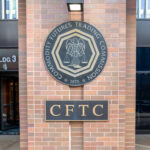AGA defends states’ right to regulate sports betting in light of CFTC nominations hearing

The American Gaming Association has reiterated its commitment to defend the sovereignty of states and tribes to regulate gambling, after Commodity Trading Futures Commission nominee Michael Selig’s appearance at a hearing on Wednesday.
The hearing was overseen by the Senate Agriculture Committee which advanced Selig’s nomination on Thursday, leaving it up to the Senate to decide if he will head the commodities regulator.
Writing on LinkedIn yesterday, American Gaming Association President and Chief Executive Bill Miller said, “[The] hearing left important questions unanswered regarding Mr. Selig’s views on prediction markets’ aggressive foray into sports betting.
“Rather than explaining how the agency he is nominated to lead would interpret and enforce its clear rules that prohibit gaming, he indicated he would instead wait on judicial determinations that could take years to resolve – and leave consumers at risk in the interim.”
According to reporting by Politico Pro, during the hearing Selig was unwilling to address questions related to how sports contracts should be regulated, saying, “This is a really complicated issue. It’s an interpretative question that’s working its way through the courts, and so I will respect the decisions of those courts.”
Sen. Adam Schiff raised the concern that prediction markets were trying to “have it both ways” by marketing themselves as sports betting, which he believed violated state law and tribal sovereignty.
Miller mirrored this sentiment in his LinkedIn post, writing, “The American Gaming Association will continue to defend the longstanding sovereignty of states and tribes to regulate gaming, and work with Congress to ensure the CFTC prevents gambling masquerading as financial products.”
Earlier in the week, news also broke that sportsbook operators FanDuel and DraftKings would be splitting from the American Gaming Association as they looked into expanding into prediction markets.
Charlotte Capewell brings her passion for storytelling and expertise in writing, researching, and the gambling industry to every article she writes. Her specialties include the US gambling industry, regulator legislation, igaming, and more.
Verticals:
Sectors:
Topics:
Dig Deeper
The Backstory
State sovereignty collides with a fast-changing market
The American Gaming Association’s defense of state and tribal authority over sports betting comes as a new wave of federally overseen prediction markets presses into territory long governed by state law. The Commodity Futures Trading Commission sits at the center of this clash. Its decisions on event contracts will shape whether wagers on sports and elections exist under a derivatives framework or remain inside the state-by-state sportsbook model built since the Supreme Court lifted the federal ban in 2018. The tension has intensified as federal courts, crypto platforms and startups push to redefine what counts as gambling, what qualifies as a derivative and who gets to police the line between them.
That backdrop informed a Senate Agriculture Committee hearing this week that advanced the chair nominee for the commodities regulator. The implications extend beyond personnel. If the CFTC takes a permissive view of event contracts or defers key questions to lengthy litigation, state regulators warn they could lose practical control over markets they license and tax. The AGA’s posture signals a coordinated industry effort to keep sports betting within state purview while pressuring Washington to police products it views as gambling dressed up as financial instruments.
Federal retreat after Kalshi reshaped the terrain
The ground shifted this fall when the CFTC backed off a legal fight over political event contracts. The agency dropped its appeal in the Kalshi election betting case, leaving in place a ruling that allows the platform to list contracts tied to U.S. elections. Kalshi hailed the outcome as a milestone for prediction markets, but the decision rattled consumer advocates and sharpened questions for the regulator about how far event-based trading can go.
The withdrawal did not greenlight every product, yet it signaled an agency willing to accept a court-dictated boundary rather than assert its own broader prohibition on gambling-like contracts. That has emboldened firms experimenting with sports outcomes under federal oversight. It also spurred backlash from groups that see election and sports contracts as gambling that can undermine public trust. The next CFTC leadership team will inherit a landscape where precedent favors at least some event contracts, and where industry players are moving quickly to seize the opening.
Integrity concerns from leagues and state watchdogs
Sports leagues and state regulators have been quick to draw a distinction between licensed sportsbooks and federally supervised prediction exchanges. The NBA warned the CFTC that sports prediction markets threaten game integrity and expand offerings without the dedicated oversight that states apply to betting. In a letter made public, the league cautioned that proposition-style contracts tied to officiating decisions or player injuries could soon follow basic win-loss markets. The league urged the commission to address risks or pump the brakes. Read the details in the NBA’s warning to the CFTC about sports prediction integrity.
State regulators have echoed those alarms. According to the NBA letter, the Michigan Gaming Control Board raised similar concerns with the CFTC, arguing that sports event contracts function as wagering even if listed on a federally regulated exchange. That argument aligns with recent moves by state watchdogs like Nevada, New Jersey and Massachusetts to assert jurisdiction over sports contracts marketed to their residents. The pushback underscores a central tension: the CFTC’s mandate to regulate derivatives does not include a bespoke sports betting unit, while states have teams built to manage integrity, consumer protections and problem gambling.
New entrants test the limits of the federal route
The promise of a federally regulated path is drawing capital, crypto expertise and financial engineering into the space. ProphetX, a peer-to-peer exchange, has filed to become both a designated contract market and a derivatives clearing organization, positioning itself as the first U.S. exchange and clearinghouse focused on sports outcomes. The firm’s plan includes a proprietary request-for-quote parlay mechanism modeled on institutional trading. See how ProphetX aims to bring sports derivatives onshore in its dual CFTC registration bid.
Crypto heavyweight Kraken also moved to cement a U.S. foothold. The company agreed to buy Small Exchange, a CFTC-licensed market, in a $100 million deal that gives it a direct line into regulated derivatives and a potential launchpad for prediction products. Kraken framed the purchase as infrastructure for a “new generation” of U.S. derivatives, and a spokesperson confirmed interest in prediction markets. The acquisition comes as other firms test similar avenues. For a broader view of the land grab, see Kraken’s prediction market ambitions via its Small Exchange deal.
This wave intersects with Kalshi’s aggressive listing strategy and with daily fantasy operators exploring CFTC-adjacent offerings through affiliates. Each move forces the jurisdictional question: if contracts settle on sports data but trade on federally supervised venues, are they sports bets subject to state law or derivatives that preempt state controls?
The illicit market shadow over the debate
Fueling the urgency is an illegal market that continues to siphon dollars from the licensed sector. The AGA estimates that unregulated operators now account for nearly one-third of U.S. gambling, costing states about $15.3 billion in annual tax revenue. The group’s latest analysis points to a surge in offshore online casino play and skill games since 2022, even as illegal sports betting’s share slipped with state legalization. The figures, which highlight billions flowing to unlicensed sites and devices, set the stakes for enforcement and consumer protection. For a breakdown of the numbers, see the AGA’s tally of illegal gambling and lost state taxes.
This backdrop cuts both ways in the prediction market fight. Advocates of a federal exchange model argue it can steer activity into regulated venues with surveillance and capital standards. State officials counter that shifting sports wagering into an agency built for commodities risks dilution of responsible gaming safeguards, know-your-customer practices tailored to betting and league integrity coordination. The policy choice is less about expansion versus prohibition than about who writes the rules and collects the taxes.
What to watch as Congress and the CFTC reset
The CFTC chair nomination and the agency’s posture on sports event contracts will shape the next phase. If federal overseers allow broader listings absent explicit congressional direction, expect rapid product innovation from exchanges and crypto-linked platforms, along with legal challenges from states. If the commission curtails sports outcomes or sets strict conditions, the state-by-state sportsbook model will retain primacy and the federal lane will narrow to elections and non-sports events.
Leagues, which have embraced regulated sportsbooks as partners, will keep pressing for guardrails that mirror state regimes or for a clear demarcation that keeps proposition-style markets out of derivatives channels. The AGA, citing integrity and tax-base risks, is likely to keep urging Congress and the CFTC to prevent gambling products from slipping through derivatives law. Meanwhile, the illegal market’s growth will add pressure on policymakers to avoid gaps that push bettors to offshore sites.
In the months ahead, watch for formal CFTC responses to exchange applications, potential rulemakings on event contracts and coordinated actions by state regulators to assert jurisdiction over residents trading sports outcomes on federal platforms. Each step will test whether the U.S. settles on dual tracks for sports risk or reaffirms that bets on games remain under state control.







